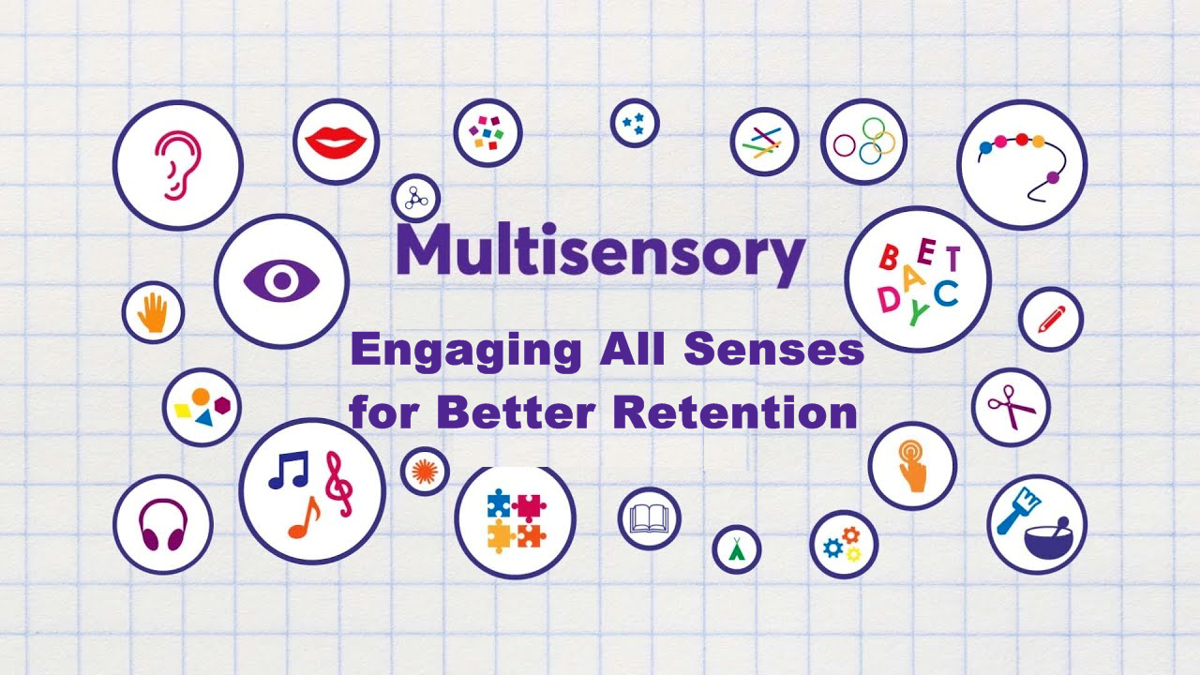How to Stay Focused While Studying: Tips to Avoid Distractions
Stay Focused While Studying with these proven tips to eliminate distractions, improve concentration, and maximize academic productivity.

Learning how to stay focused while studying is a challenge for many students, especially in a world filled with distractions. From buzzing notifications to endless social media feeds, maintaining concentration has become harder than ever. Yet, staying focused is crucial for academic success, helping students retain information, meet deadlines, and perform well in exams. Developing the right habits and environment can transform your study sessions into productive and distraction-free experiences.
This guide explores practical strategies to help students stay focused while studying, including tips for time management, creating a conducive workspace, and minimizing interruptions. Whether preparing for exams or completing daily assignments, these techniques will empower you to harness your concentration and achieve your academic goals.
Read More: How to Stay Focused While Studying
Understanding the Importance of Focus in Studying
To stay focused while studying, it’s essential to understand why concentration is critical for academic success.
Focus enables you to process and retain information more effectively. When you’re fully engaged in your studies, you’re less likely to make mistakes or overlook key details. On the other hand, distractions can disrupt your learning flow, leading to wasted time and reduced comprehension. Developing focus ensures that your study sessions are efficient and productive, paving the way for academic excellence.
Identifying Common Distractions During Study Sessions
Recognizing common distractions is the first step toward staying focused while studying.
Distractions can come in many forms, from social media and text messages to noisy environments and internal stressors. Identifying these interruptions helps you create strategies to minimize their impact. By understanding what disrupts your focus, you can take proactive steps to maintain concentration and stay on track.
Creating a Dedicated Study Space
A dedicated study space is crucial for staying focused while studying, providing a distraction-free environment tailored to your needs.
Choose a quiet location with good lighting and minimal noise. Keep your desk organized, with only the materials you need for your current task. Personalizing your study space with motivational quotes or calming colors can further enhance your focus, creating a space where you can concentrate effectively.
Setting Clear Goals for Each Study Session
Clear goals are essential for staying focused while studying, giving you a sense of purpose and direction.
Before starting your study session, outline what you aim to achieve. Whether it’s completing a chapter or solving a set number of problems, having specific objectives keeps you motivated and on track. Goals also help you measure your progress, reinforcing a sense of accomplishment.
The Role of Time Management in Staying Focused
Effective time management is a cornerstone of staying focused while studying, ensuring that you allocate your energy wisely.
Divide your study time into manageable intervals, prioritizing tasks based on urgency and importance. Tools like planners or time-tracking apps can help you stay organized and avoid procrastination. By managing your time effectively, you can maintain a steady pace and prevent burnout.
Minimizing Digital Distractions
To stay focused while studying, minimizing digital distractions is vital, as they are among the most common interruptions.
Turn off unnecessary notifications on your phone or computer. Use apps or browser extensions that block access to distracting websites during study sessions. Creating digital boundaries ensures that your focus remains on your studies rather than external distractions.
Practicing the Pomodoro Technique
The Pomodoro Technique is an effective method for staying focused while studying by promoting sustained concentration.
This time management strategy involves studying in short bursts (usually 25 minutes) followed by brief breaks. These intervals prevent mental fatigue and help maintain focus, making your study sessions more productive and engaging.
Incorporating Regular Breaks to Recharge
Taking regular breaks is essential for staying focused while studying, as it prevents burnout and restores mental clarity.
Short breaks between study intervals allow your brain to recharge, improving retention and focus. Activities like stretching, walking, or meditating during breaks can refresh your mind, preparing you for the next session.
Staying Physically Active to Improve Concentration
Physical activity plays a significant role in staying focused while studying by enhancing blood flow to the brain.
Exercise releases endorphins, reducing stress and improving mood. A quick workout or even a short walk before studying can sharpen your focus and boost productivity, ensuring that you’re mentally prepared to tackle academic challenges.
Eating the Right Foods for Better Focus
Nutrition is a critical factor in staying focused while studying, as the brain requires proper fuel to function optimally.
Foods rich in antioxidants, omega-3 fatty acids, and complex carbohydrates, like nuts, fish, and whole grains, enhance cognitive function. Avoid sugary snacks and caffeine overload, which can lead to energy crashes. A balanced diet supports sustained concentration and mental clarity.
The Importance of Adequate Sleep for Focus
Adequate sleep is a non-negotiable component of staying focused while studying, directly affecting cognitive performance and memory.
A well-rested mind is better equipped to process information and stay alert. Aim for 7-9 hours of quality sleep each night, and establish a consistent sleep schedule to optimize your focus and energy levels.
Using Study Tools to Enhance Concentration
Study tools, such as flashcards, highlighters, and digital apps, are valuable aids for staying focused while studying.
Interactive tools keep you engaged, making learning more enjoyable and effective. Apps that provide quizzes, timers, or organizational features further enhance focus by streamlining your study process.
Staying Motivated Through Positive Reinforcement
Motivation is a key element of staying focused while studying, and positive reinforcement helps maintain it.
Reward yourself for completing tasks or achieving milestones. Whether it’s enjoying a favorite snack or taking a longer break, small rewards keep you motivated and focused on your goals.
Cultivating a Growth Mindset for Better Focus
A growth mindset is essential for staying focused while studying, as it fosters resilience and a love for learning.
Embrace challenges as opportunities to grow, and view mistakes as part of the learning process. This positive attitude enhances focus, making your study sessions more productive and enjoyable.
Practicing Mindfulness During Study Sessions
Mindfulness is a powerful technique for staying focused while studying, promoting presence and awareness.
By practicing mindfulness, you can train your mind to focus on the task at hand, reducing the influence of distractions. Techniques like deep breathing or meditation before studying help create a calm and focused mindset.
Avoiding Multitasking to Maintain Concentration
Multitasking undermines your ability to stay focused while studying, dividing your attention and reducing efficiency.
Focus on one task at a time to ensure quality and comprehension. Completing tasks sequentially improves productivity and minimizes errors, making your study sessions more effective.
Setting Boundaries with Family and Friends
Setting boundaries is essential for staying focused while studying, ensuring that your study time remains uninterrupted.
Communicate your schedule with family and friends, and ask for their cooperation in minimizing distractions. Establishing clear boundaries allows you to create a supportive environment for concentrated learning.
Preparing Study Materials in Advance
Preparing your study materials beforehand is a simple yet effective strategy for staying focused while studying.
Organize your notes, textbooks, and supplies before starting, eliminating the need to search for items mid-session. Being prepared streamlines your study process and keeps you on task.
Using Technology Wisely to Support Studying
Technology can be a double-edged sword, but using it wisely supports staying focused while studying.
Educational apps, digital planners, and online courses enhance learning while minimizing distractions. Leverage technology to access resources and tools that improve efficiency and focus.
Tracking Progress to Stay Motivated
Tracking your progress is a valuable strategy for staying focused while studying, as it reinforces your efforts and achievements.
Use journals, checklists, or apps to monitor completed tasks and milestones. Seeing tangible progress boosts motivation and encourages continued focus on your academic goals.
Read More: How to Stay Focused While Studying
Conclusion
Learning how to stay focused while studying is a transformative skill that enhances productivity and academic performance. By creating a distraction-free environment, managing your time effectively, and prioritizing physical and mental health, you can optimize your study sessions for success. Consistency and mindfulness are key to maintaining concentration, enabling you to approach your studies with confidence and clarity.
As you implement these strategies, staying focused while studying will become second nature. By developing these habits, you’ll not only achieve your academic goals but also build skills that will serve you in all areas of life, from personal growth to professional success.
FAQs
1. How can I stay focused while studying for long hours?
Break your study time into manageable intervals, take regular breaks, and create a distraction-free environment to maintain focus.
2. What foods improve focus during studying?
Foods rich in omega-3s, antioxidants, and complex carbohydrates, such as nuts, fish, and whole grains, enhance cognitive function.
3. How does sleep affect focus while studying?
Adequate sleep improves memory, concentration, and cognitive performance, making it essential for effective studying and learning.
4. Can exercise help improve focus during study sessions?
Yes, regular physical activity boosts blood flow to the brain, enhancing focus, memory, and overall cognitive function.
5. How can I minimize digital distractions while studying?
Turn off notifications, use website blockers, and designate specific times to check your phone or social media.







